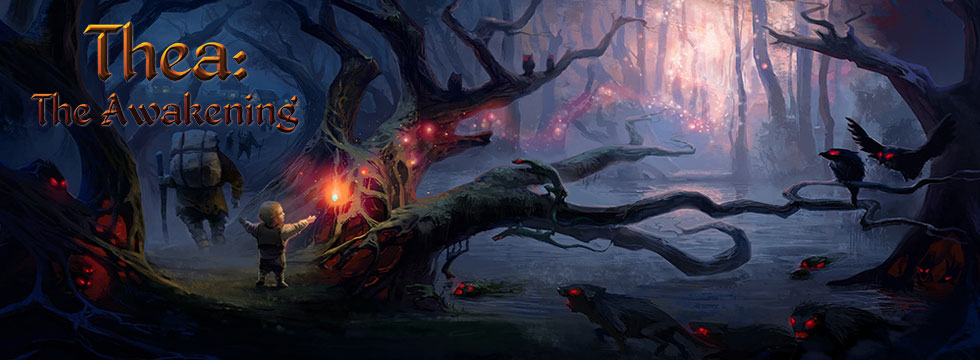author: Czarny
Thea: The Awakening impressions – an unusual mix of genres in a Slavic setting
Slavic mythology is rarely used theme. With the exception of The Witcher, we’d be hard-pressed to name a recently-made, successful game that was inspired by the old beliefs of this ethnic group. This is where Thea: The Awakening comes in.
Read the review Review of Thea: The Awakening – Civilization in a Slavic setting?
This text was based on the PC version.
- A turn-based fantasy game set in a universe inspired by Slavic myths;
- Strong emphasis on survival and crafting;
- Combat in the form of a card minigame;
- Non-linear storyline and significance of random elements.
The game offers quite an intriguing premise: it's a turn-based fantasy strategy that combines mechanisms typical for survival productions with solutions known from card games. The gameplay is fairly open-ended, with most elements random in nature (it’s quite obvious that the roguelike genre has been a huge inspiration). To make matters even more interesting, the story is deeply rooted in Slavic mythology with a sprinkling of post-apocalyptic themes. This specific combination is enough to make the title intriguing – and raise some doubts as well. There's no denying that mixtures like this often turn out so overdone that they become virtually unplayable.
The failed Kickstarter campaign didn't look too optimistic either; even though the developers aimed at collectijg a modest amount of GBP 10,000, they didn't even manage to acquire half of this sum. Refusing to give up, they got down to hard work instead, and the fruit of their labor comes in the form of an early access version on Steam Greenlight.
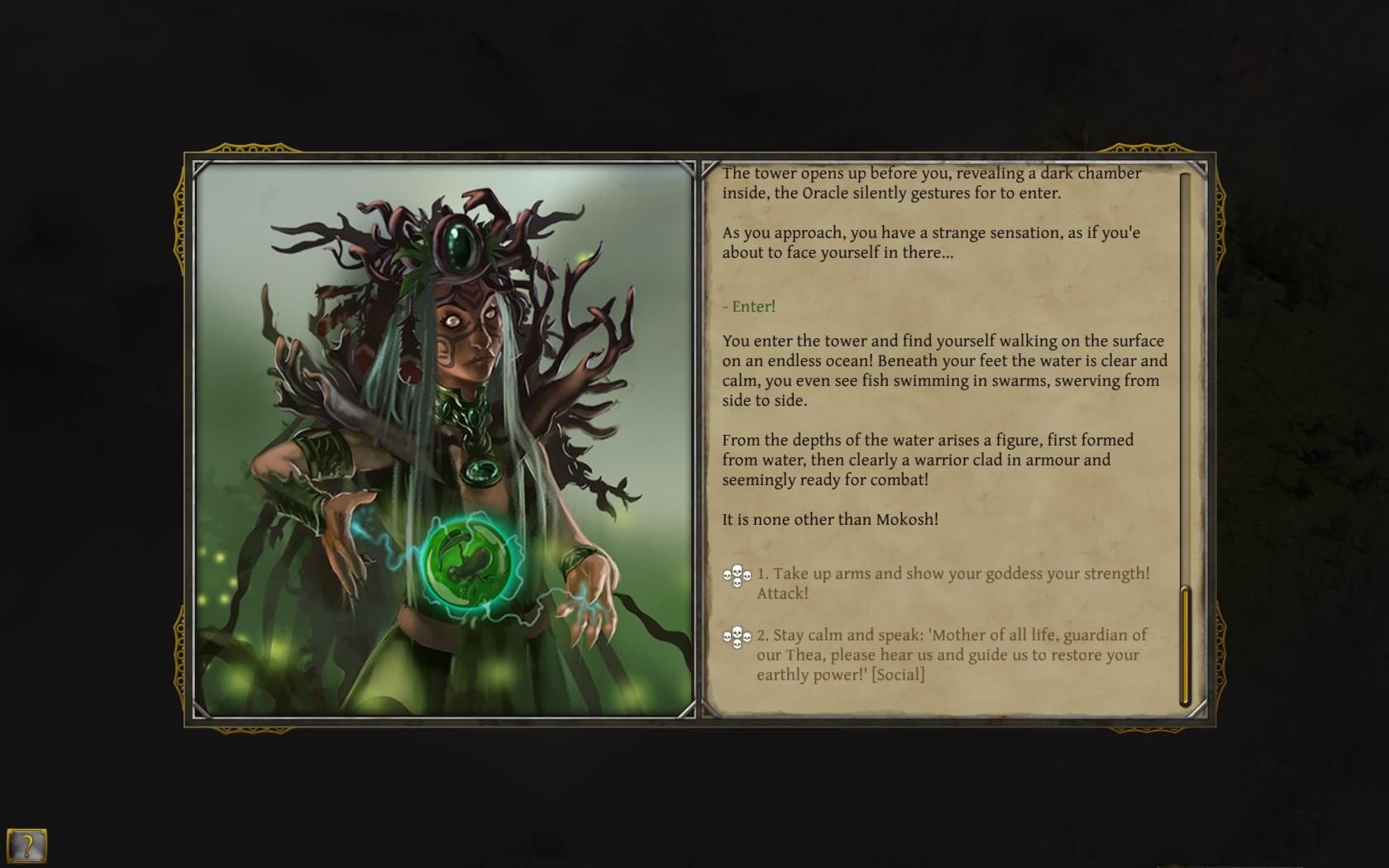
We, the Slavs
One of the greatest assets of the production is without a doubt its universe – at every turn we encounter fantastical creatures and deities from the Slavic folklore such as Perun, Veles and Svarog. In the course of our adventures we get to know the Wawel Dragon, overcome Baba Yaga and take part in the events known from different stories and fairy tales from this corner of Europe.
Contrary to what you might think, the game is rather serious – the adventure starts when the darkness that had shrouded the land of Thea for many years comes to an end. The remaining survivors are trying to re-populate the world, struggling with diseases, curses and malicious idols – and our goal is to support them in their efforts. The motive of a Slavic-like apocalypse has been heavily emphasized: every now and then we come across ruins of ancient cities, artifacts or ghosts who remember the times before the advent of darkness.
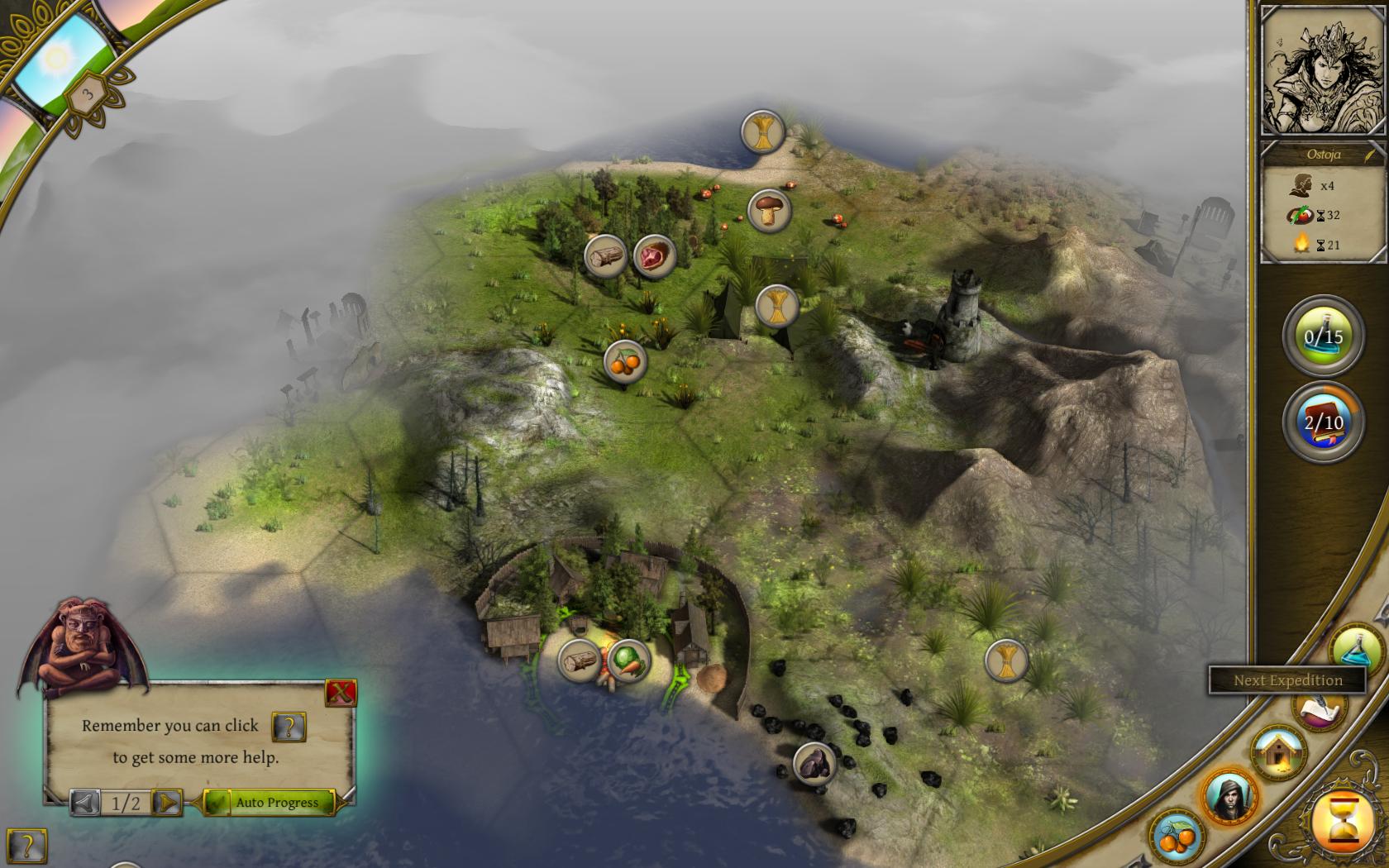
The graphic design proves to be quite atmospheric. The creators used the Unity engine, widely used in indie games, which doesn't offer mesmerizing effects, but allows for neat and clear presentation of the world. This is accompanied by hand-drawn silhouettes of all the characters, monsters and deities, many of them bearing resemblance to what we could find in old black-and-white RPG manuals. Most of them can be seen on special cards that are used in combat, whereas during dialogues static images appear (unfortunately, rather cheap-looking).
The specific ambiance is really appealing – it is complemented by numerous story descriptions, long dialogues and gamebook-like sequences (similar to those that appeared in Pillars of Eternity). Pretty soon, however, we notice a certain inconsistency of the authors as they emphasize pathos and certain archaisms only to follow them up with phrases like "C'mon" or "Whatever" during the same conversation. Stuff like this completely knocks the player out of a rhythm and spoils the overall immersion.
Devil is in the details
The gameplay in Thea: The Awakening is based on four pillars: expansion of the settlement, crafting, survival, and clashes with opponents. The first one is by far the easiest – we start the game with a village where we can erect new buildings, create useful items, and store food and other resources. It's here that new members of the tribe appear (born "naturally" or found in the fields of cabbage); it’s also the place where we craft. Our settlement serves as a starting point from which we send subsequent teams to conquer the wilderness.
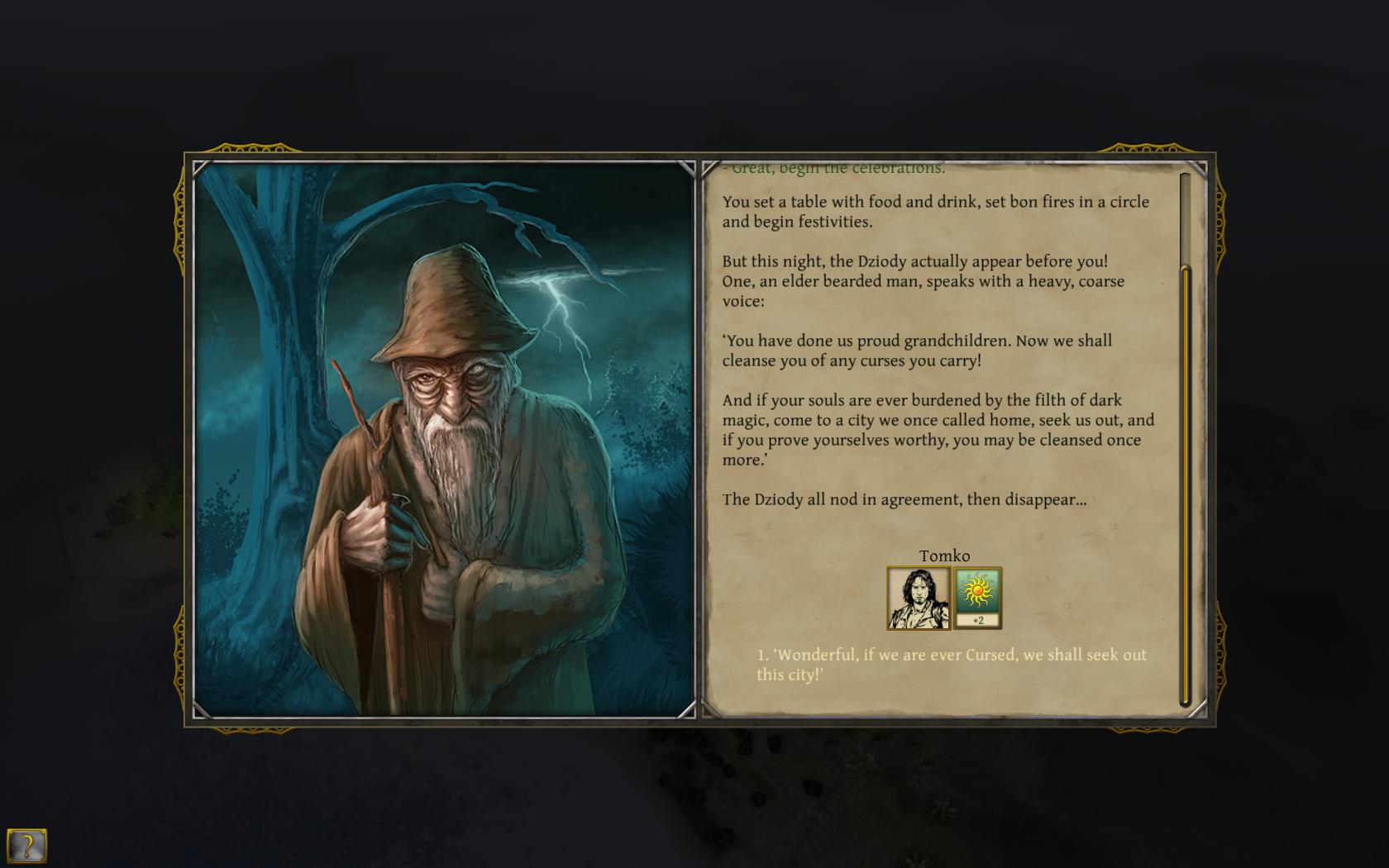
Crafting mechanics have great potential. During our adventures we gain numerous resources that can be transformed into items or used to erect buildings. To acquire materials we simply have to collect them by sending people to the right place and instructing them to gather whatever resource is there. We discover new resources when advancing to higher levels of technology, added automatically upon each task, skirmish or random event. Thus, in addition to wood and food, we will also be able to acquire malachite, gold and mithril, used to create much better equipment.
Survival-related aspects are quick to manifest themselves, with their basic mechanics being quite simple: all characters need food and fuel to survive in the inhospitable land. During the plague we may also resort to the use of medicinal herbs, and the blessings acquired in the course of the adventure can protect us against curses. Survival is a priority – both the village and the recon teams are subject to various events that occur very frequently and often end in the death of our people. Since the vast majority of such events are random in nature, we are not able to fully protect ourselves against them (at least for now – perhaps in the final version this aspect will be better balanced).
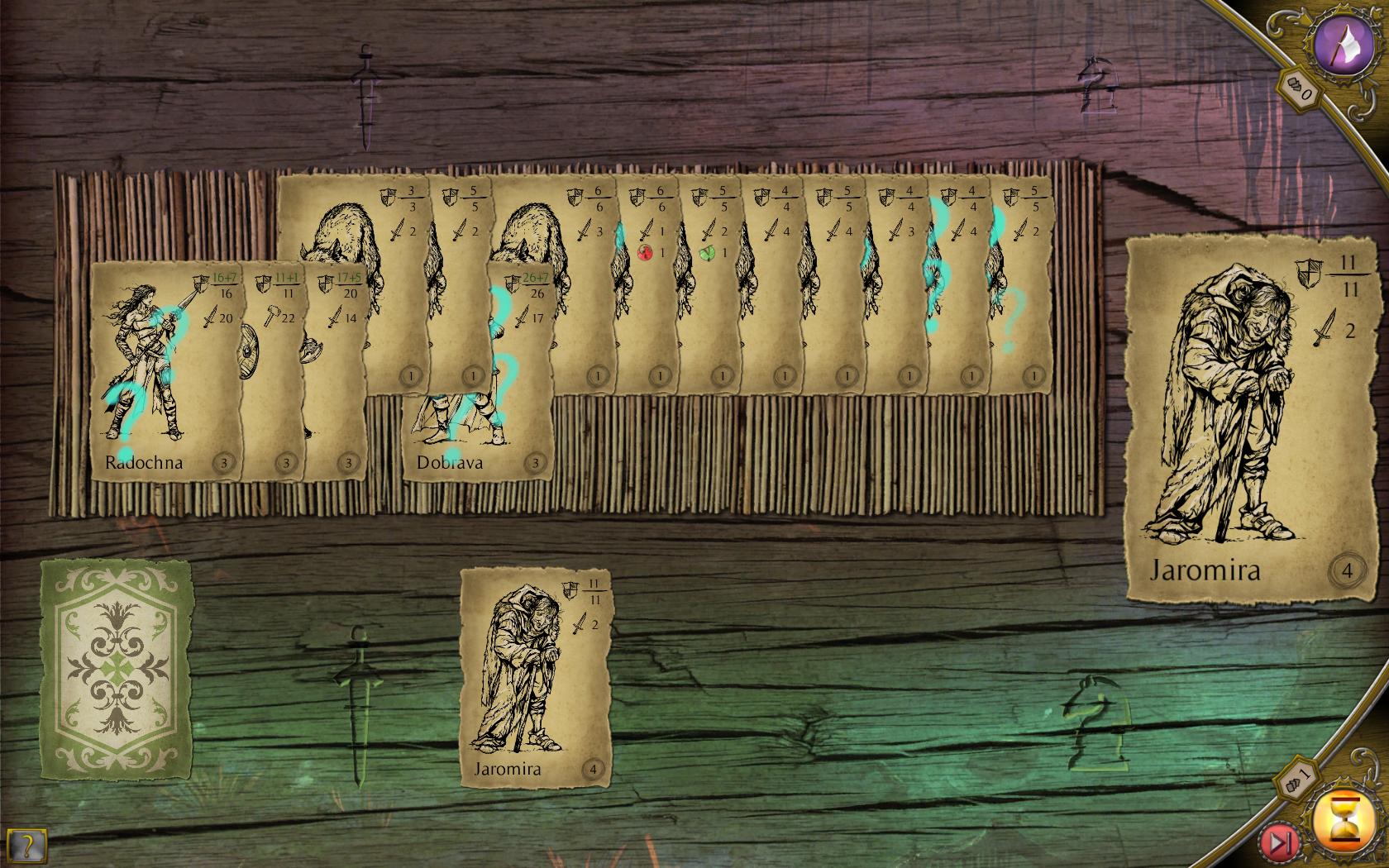
Another element of the game involves showdowns with opponents and other adversities. Each character has several or dozen statistics that vary depending on hero’s level of experience, class, equipment and acquired bonuses. All conflicts are settled by playing a card minigame in which we can use characters as cards, divided randomly into assault and tactical units. Depending on the character of a clash, other attributes of the hero are taken into account as well. Combat mechanics are rather complicated and it’s very easy to get confused, even more so as the skills of our heroes are different for various types of challenges. While an ordinary fight with a pack of wolves only requires physical strength and good weapons, it’s a completely different case when it comes to sneaking, solving puzzles and using persuasion. With the heroes' attributes being quite numerous and the challenges frequent and varied, it is impossible to create a universal team that can cope with all of them. All of this immediately makes the fun chaotic.
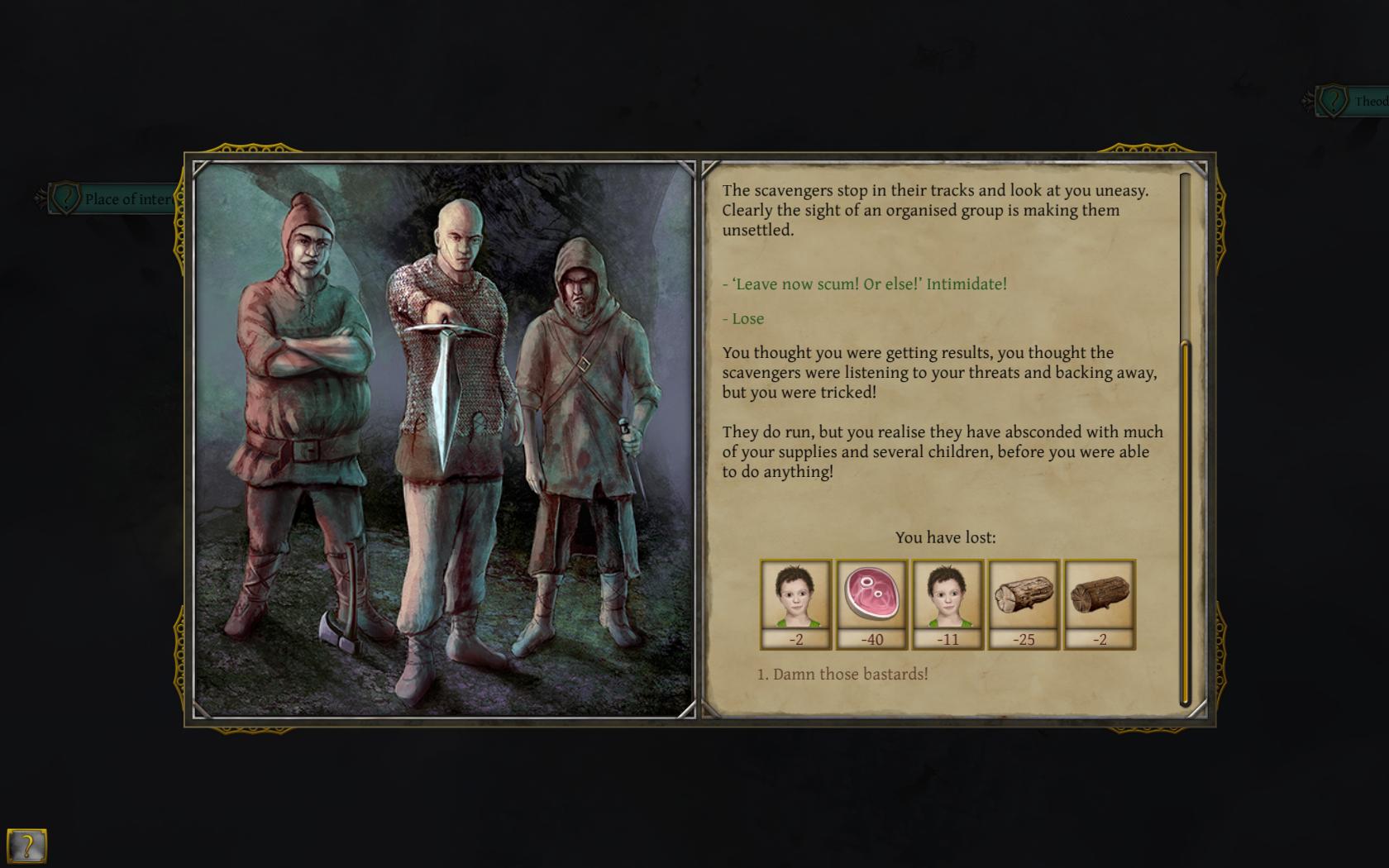
The abovementioned combat model is a major problem of the game. Sometimes we have to deal with a couple of random challenges in a row in the same turn, which usually ends in the death of the whole team. It often happens that we are not informed of imminent trouble – first, out of the blue, our village falls victim to a curse, then looters, and finally a giant dragon appears that burns everything to the ground. As you can see, we can receive damage without any mistake on our part, which is all the more frustrating as we are dealing with permakill mechanics (once a hero is killed, they’re gone for good). What's worse, Thea allows us to have only one save file slot, which overrides automatically every now and then – all casualties are therefore impossible to bring back. In the end, our success or failure is determined by blind fate, and not our skills.
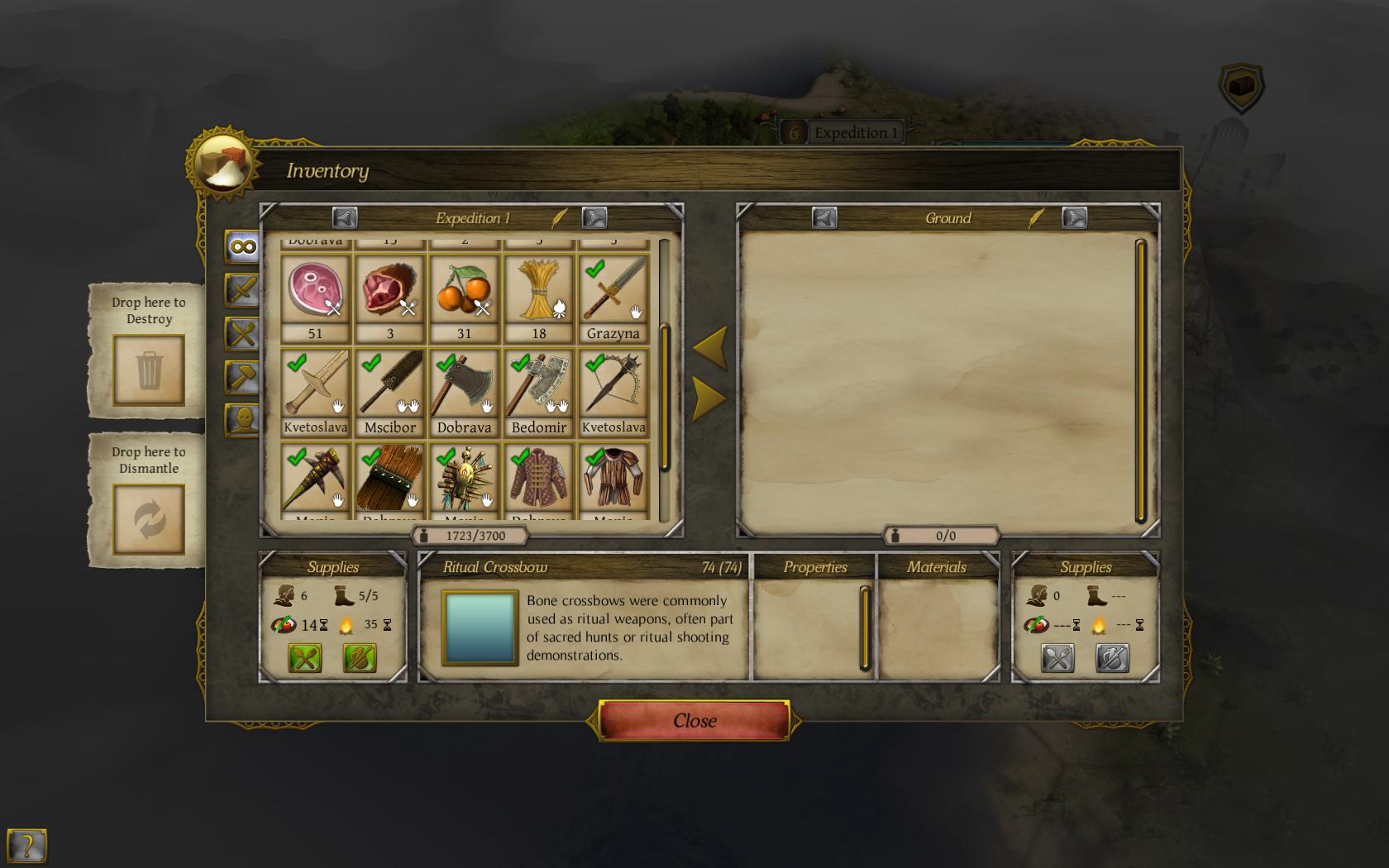
An old tale
The gameplay is partially non-linear, though always based on a similar pattern. The initial circumstances are random, and bonuses derived from deities can be freely chosen, but the tasks themselves basically don’t change. True, most of them can be solved in at least two ways, but sooner or later we'll come across the same tasks anyway. This is probably due to the fact that the game is still at a fairly early stage of development; perhaps the gameplay will be more varied in the future.
Thea: The Awakening is a game that evokes very mixed feelings. It's perfectly obvious that the developers must get down to work in order to polish their production. An especially big challenge involves balance – for now, crafting is totally unprofitable as the best items are found in the course of adventures, while clashes and challenges are so unpredictable that they bring more frustration than satisfaction. Let’s hope, however, that the issues are tackled successfully, because the game shows great potential waiting to be used in further development. May the team from MuHa Games have enough persistence and patience to complete their project. It’s not often, after all, that we have an opportunity to play as Svarog or Perun and thus restore deserved attention to the Slavic culture.
